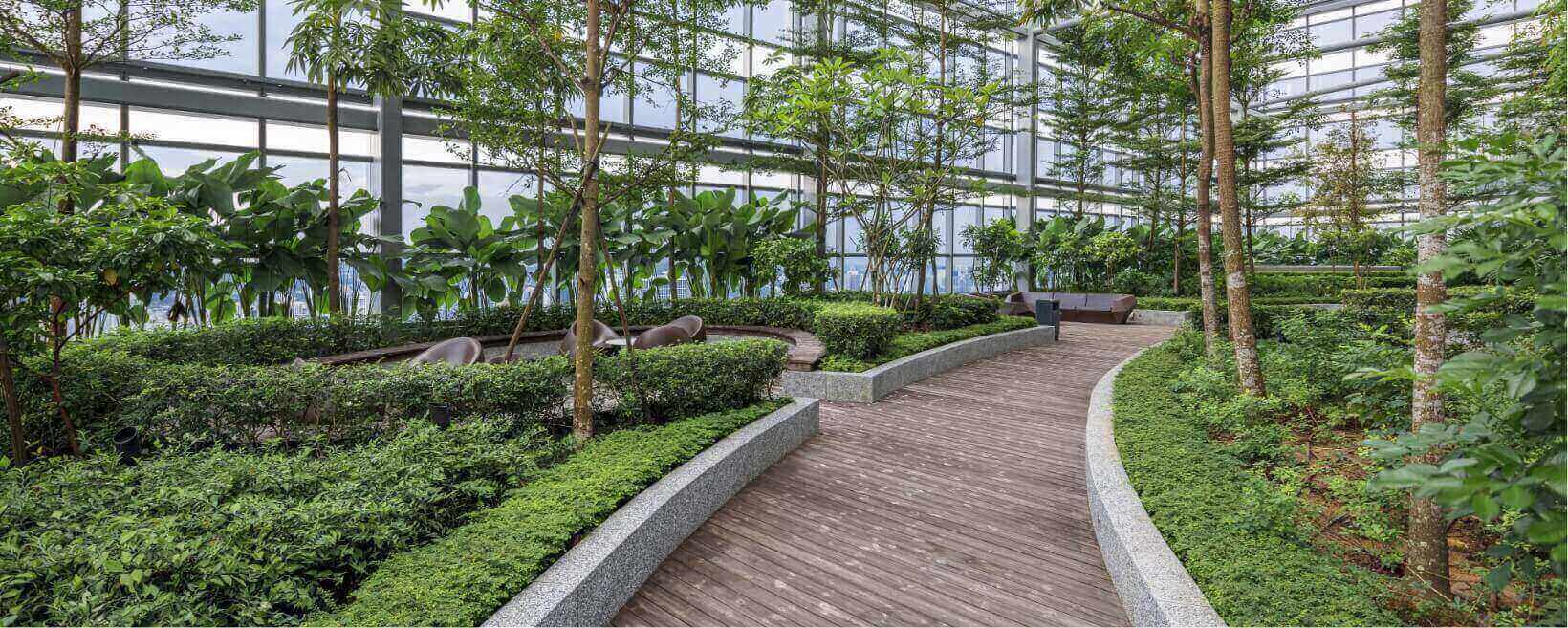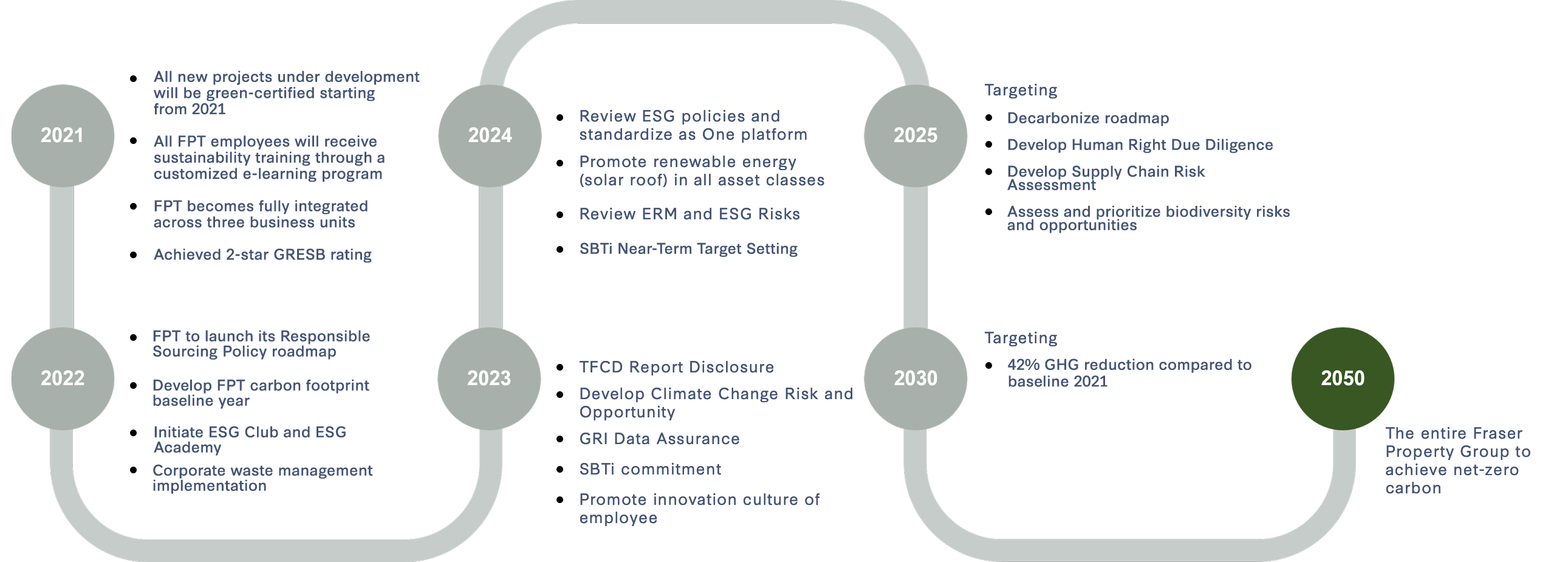Sustainability development
Our sustainable development driven under the framework like Frasers group by three pillars, namely acting progressively, consuming responsibly and focusing on people. These three pillars forms a multi-disciplinary approach that recognizes 13 corresponding environment, social and governance (ESG) focus areas. We prioritize to develop in our value chain. Which will be able to deliver value to the stakeholder and appropriate to our business with the different situations and changes.

Environmental
Consuming Responsibly: Because we rely on natural resources for our business operations and daily consumption. So, we need to learn how to efficiently use material along the supply chain by achieving sustainable management. Increasing substantially energy efficiency and renewable energy use, reducing substantially waste and water to enhance the environment and ecosystem through our development. Increasing substantially energy efficiency and renewable energy use, reducing substantially waste and water to enhance the environment and ecosystem through our development, prevention, reduction, recycling, and reuse. And under environmental rehabilitation in order to maintain the environmental sustainability.

Social
Focusing on People; To effective business operations we shall considering social value principles for communities connectedness, customer and product stewardship community engagement corporate philanthropy. To ensure healthily and balance work and community environments, and occupational health and safety. Creating a culture of human capital development for the potential of personnel, leaders’ effectiveness. By developing skills and leadership programs that support productivities, creativity, and innovation to deliver high-value products and services and empowering and promoting the social inclusion of all under human rights code.

Governance
Acting Progressively: We emphasizing on risk and business continuity management. By improving operational processes along with innovation development. To enhance our products and services with the collaboration from various sectors and respect to impact in the value chain, societies, and environmental. Under the principles of good governance, ethical business and code of conduct to be able to adjust according to the changing situation
Highlight Projects
SBTi Near Term Target Validation
The Company has set a near-term target of a 42% reduction in greenhouse gas emissions by 2030, using 2021 as the baseline. This target has been validated by the Science Based Targets Initiative (SBTi) on 12 September 2024.
The aforementioned near-term target will support the Company’s goal of becoming a net-zero carbon organization by 2050.
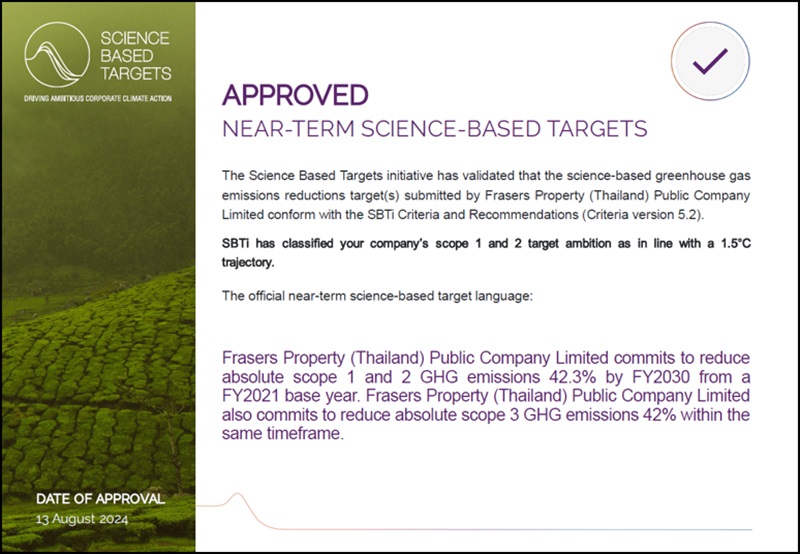
Low Emission Support Scheme (LESS) Project
The Company has implemented the Low Emission Support Scheme (LESS) Project in three housing projects: the Grand Chaengwattana-Muang Thong, the Grand Pinklao-Wongwaenkanchana and Grandio Sathorn. The LESS project focuses on planting trees that have been selected in accordance with six criteria established by the Thailand Greenhouse Gas Management Organization (TGO). Examples of these trees include trumpet trees, black plum, date palm, rain trees, ivory, and Indian oak. The Company has planted more than 3,000 trees across these three housing projects. This initiative has resulted in an increase in green space and the cultivation of biodiversity within the projects.
Furthermore, the Company prioritizes the care of these trees and the collection of tree-related data, including their measurements and the amount of carbon offset. In 2024, the Company received a Letter of Recognition (LOR) from TGO, indicating that 413 trees in the projects help reduce CO₂ emission by approximately 73.66 tCO₂e. This figure represents the cumulative total since the commencement of planting until 4 August 2024.
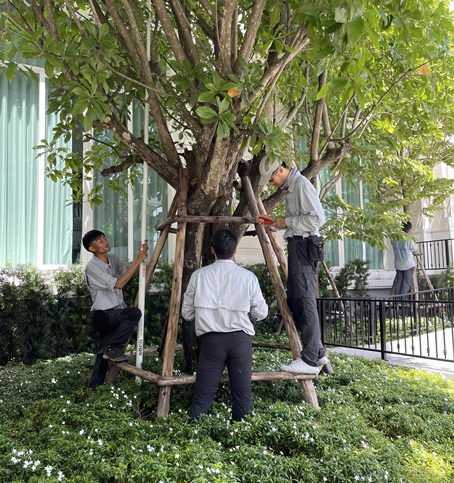
LEED Certification
As a leading company in responsible business practices, the Company is committed to integrating responsible investments and sustainability factors into its decision-making strategies for developing high-quality, safe, environmentally friendly, and socially responsible properties that are resilient to climate change and responsive to customer demands.
In 2024, the Company obtained LEED certification for four buildings: Silver Oak (Central), Jasper BP7 W1, Jasper BP7 W2, and Jasper BP7 W3.
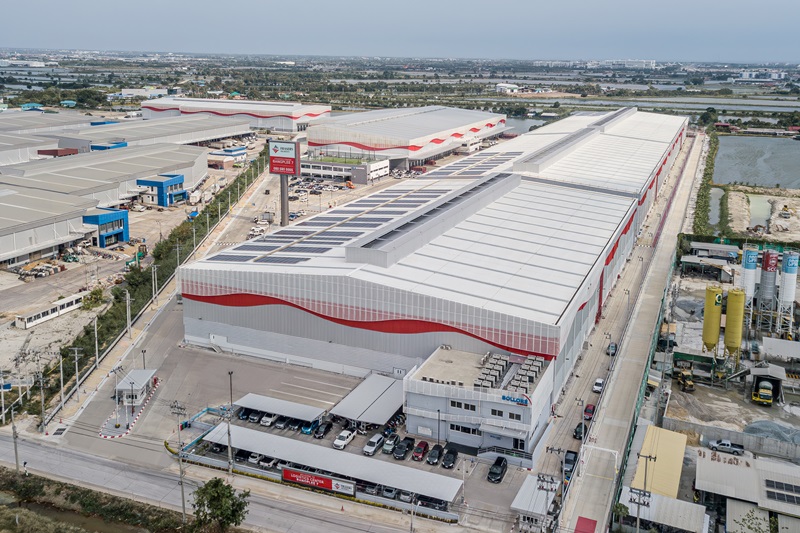
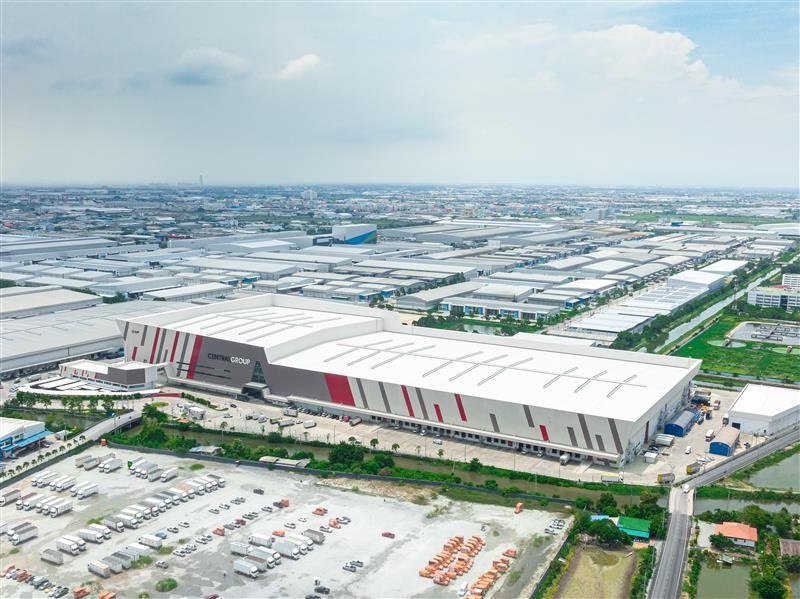
Blood Donation
The “Frasers Property Thailand Blood Donation” event is conducted quarterly in collaboration with the National Blood Center, Thai Red Cross Society, marking its fourth consecutive year. The most recent event was the 17th event, which took place from 9 to 10 September 2024 at Samyan Mitrtown. During this event, a total of 571,950 cc of blood was donated, with participation from 1,271 individuals including the Company’s employees, Samyan Mitrtown customers, and healthy members of the community. To date, the Company has contributed a cumulative total of 6,703,900 cc of blood since the event was implemented in 2020. This event demonstrated a social return of 4.5 Baht for every baht invested, equating to a 4.5 times social return on investment (SROI).
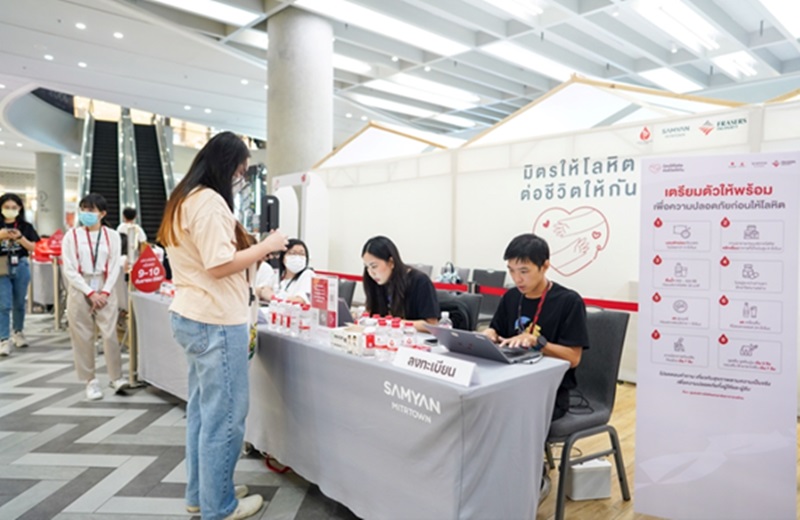
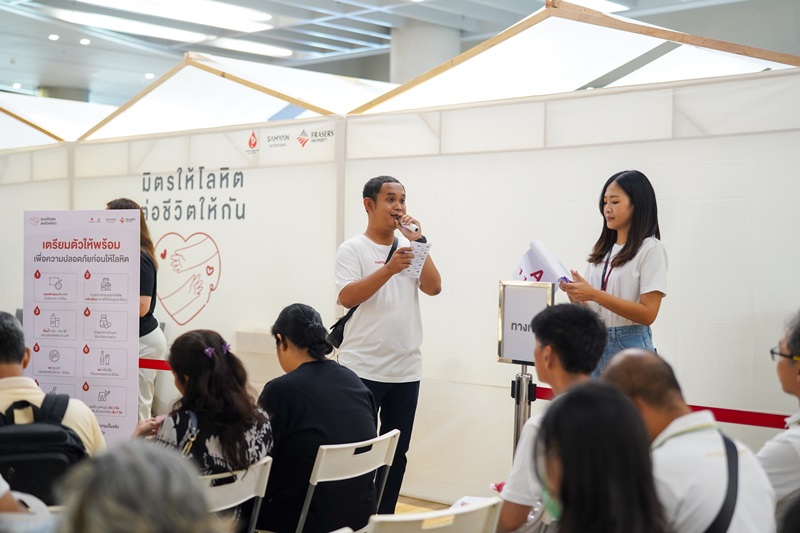
Electric Power Storage Carts
The Company developed electric power storage carts to reduce energy usage and facilitate nighttime cleaning activities. These carts are an employee-led innovation, which was initiated in the idea brainstorm meeting. They are equipped with 200W LED spotlights and solar cells to generate renewable energy to power their two main features: 1) a lighting feature, and 2) an ozone and UV lamp feature. These carts have been deployed at Silom Edge and Samyan Mitrtown, covering 3% of the total asset area in the portfolio.
The lighting feature has reduced the need for lighting in the central area and restrooms, saving approximately 9,860 kilowatt-hours (kWh) or 9.86 MWh of electricity per year. This reduction in electricity usage helps lower operational costs by 47,550 Baht annually and corresponds to a yearly reduction of 4,930 kgCO₂e. Moreover, the ozone and UV lamp feature helps prevent the spread of disease, viruses and bacteria during cleaning activities.

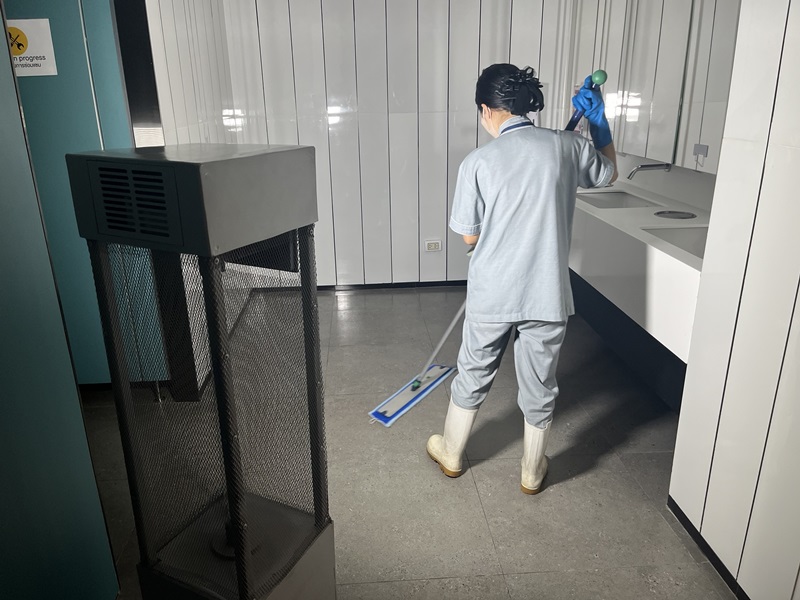
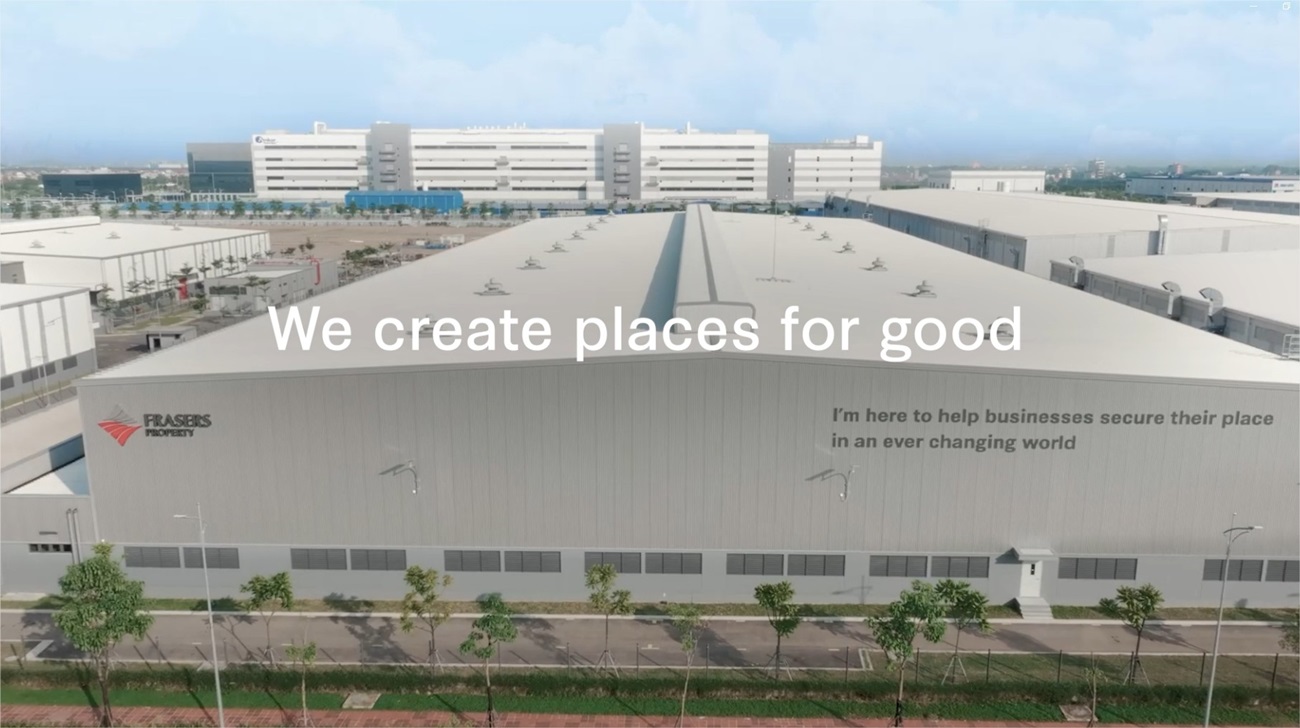

Sustainability Goals

Sustainable Development Journey
Sustainability Framework
Innovation
Fostering a culture of innovation that creates value and strengthens our competitive edge
Materials & Supply Chain
Achieving sustainable management and efficient use of materials along the supply chain
Community Connectedness
Considering social value principles for communities
Innovation
The Company recognizes that innovation and technological advancements can affect sustainability and alter customer preferences and behaviors. Failing to embrace new technologies and innovation could exacerbate environmental and social impacts of the Company’s business activities or hinder its mitigations for these impacts. Therefore, the Company is committed to integrating innovative solutions into its business strategies to align with its sustainability goals and respond to evolving needs and the behaviors of customers. The Company also nurtures a culture of innovation among employees and business partners.
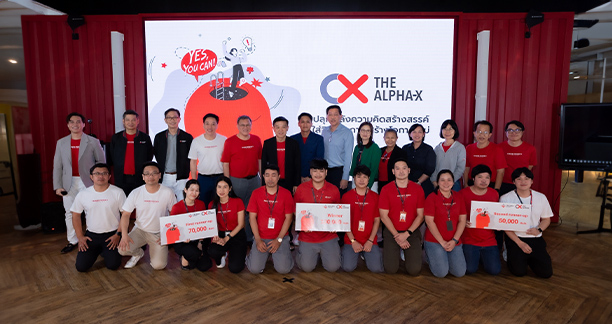
75
innovation courses were provided to employees in 2024.
8,301
learning hours
in innovation courses were recorded in 2024.
3
innovation ideas were initiated by employees in 2024.
Materials and Supply Chain
The Company is aware that poor management of materials and supply chains can negatively affect resource consumption and increase the ecological footprint of its products and services. The Company is also aware that suppliers have undoubtedly been integral to the growth and success of businesses. In this regard, the Company is focusing on a safe production process and the procurement of materials that comply with quality standards while being environmentally and socially friendly. This reflects the Company’s commitment to responsible supply chain management throughout the procurement process and supplier engagement.
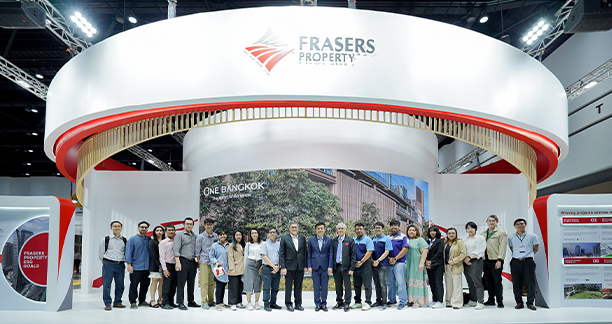
100%
of new suppliers must sign acknowledgement to Responsible Sourcing Policy and complete vendor sustainability assessment survey by 2030.
45%
of suppliers signed acknowledgement to Responsible Sourcing Policy in 2024.
45%
of unique significant suppliers participated in capacity building programs in 2024.
Community Connectedness
Communities and customers, as key stakeholders, play a crucial role in shaping business conduct and encouraging greater responsibility towards society and the environment. Furthermore, they provide valuable and honest feedback, which is invaluable for enhancing products, services, and sustainability initiatives, ultimately leading to better outcomes and more substantial contributions to sustainable development. With this awareness, the Company places great importance on the needs, feedback, opinions, and expectations of its communities, customers, and tenants by committing to fostering strong relationships through community development and customer-related initiatives.

2.38
million THB
was contributed to communities in 2024.
89%
was the average customer satisfaction score in 2024.
3,297
hours
of employees engaged in corporate social responsibility (CSR) programs.
6.7
million cc
of blood was donated to the National Blood Center, Thai Red Cross Society (accumulative amount).
Resilient Properties
Strengthening resilience and climate adaptive capacity
Biodiversity
Enhancing the environment and ecosystem through our developments
Health & Well-being
Ensuring healthy and balanced work and community environments
Resilient Properties
The Company recognizes that developing buildings to be capable of withstanding extreme weather events and environmental changes is crucial. Therefore, the Company is committed to developing resilient properties by adapting to climate change and implementing strategies to manage climate-related risks. Moreover, the Company is focused on identifying opportunities arising from climate change to support its goal of becoming a more resilient and sustainable organization.

100%
of new project developments included the assessment and management of climate change as a standard.
The Science Based Targets Initiative (SBTi)
has validated the Company’s near-term target of a 42% reduction in greenhouse gas emission by 2030 compared to baseline 2021.
Biodiversity
The Company realizes that biodiversity is crucial for supporting ecosystem resilience, habitat stability and resource availability, which are fundamental to sustainability. Thus, the Company is committed to reducing its environmental impact, particularly on ecosystems and biodiversity, by establishing internal requirements to mitigate risks and impacts on biodiversity. Meanwhile, it is also dedicated to implementing programs that create long-term positive impacts on biodiversity to ensure that all projects coexist harmoniously with the environment, ecosystem, and surrounding communities.
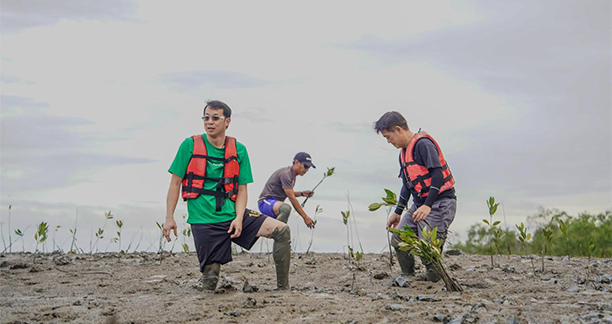
14%
of total areas in new residential projects were green areas in 2024.
No project
was developed in natural conservation areas.
850 trees
were planted in new residential projects in 2024.
Health and Well-being
The Company realizes that as people encounter emerging problems and unforeseen events that heighten the risk of new or recurring health problems, the significance of health and well-being remains a critical concern. Given that business activities in the real estate sector, including construction activity and property management, present various occupational health and safety challenges – ranging from minor injuries to illnesses and fatalities – the Company places a strong emphasis on safeguarding the health and safety of employees and contractors.
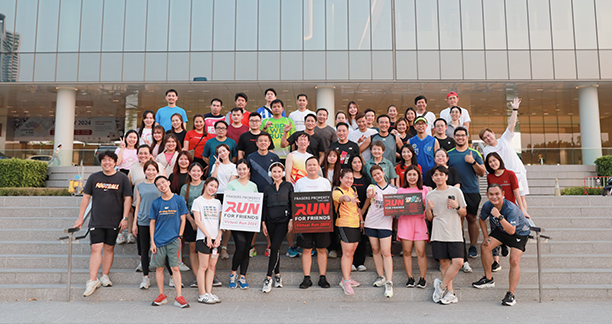
66%
was the employee satisfaction score.
Zero
fatal incident occurred involving employees and contractors in 2024.
26 sessions
of health and safety trainings were conducted for employees in 2024.
Risk-Based Management
Comprehensive assessment to address environmental, health, safety and social risks
Energy and Carbon
Improving energy consumption and reducing carbon emissions
Diversity, Equity and Inclusion
Creating, inspiring and nurturing an inclusive culture that unlocks the power of diverse teams to drive Frasers Property forward
Risk-based Management
The Company is aware that robust risk management is essential for minimizing the potential adverse impacts of its activities across the value chain and enhancing the Company’s ability to handle unforeseen changes and challenges. The Company is therefore committed to prioritizing risk management and opportunity management. The clarity and transparency of our policies and procedures are crucial in preventing potential organizational risks. This ensures strict adherence to good corporate governance principles, as well as compliance with relevant laws and regulations.
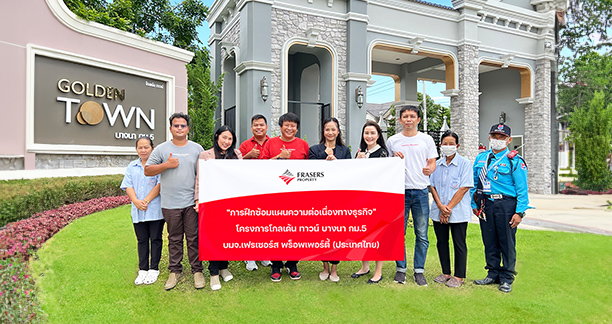
3,020
learning hours
in ethics and good corporate governance courses were recorded in 2024.
100%
of infrastructure systems had been thoroughly inspected and tested, covering the entire organization’s operating systems.
2,103
learning hours
in cybersecurity courses were recorded in 2024.
Energy and Carbon
The Company recognizes that business activities related to energy and fuel consumption, driven by ongoing industrialization and urbanization, may further contribute to climate change. Therefore, the Company is committed to ensuring the efficient energy consumption throughout its business activities across the value chain. The Company has developed a comprehensive plan to minimize greenhouse gas emissions from all business units in order to drive its goal of becoming a net-zero carbon organization by 2050. To support this goal, the Company has also set a near-term target of a 42% reduction in greenhouse gas emissions by 2030, using 2021 as the baseline. This target has been validated by the Science Based Targets Initiative (SBTi) on 12 September 2024.
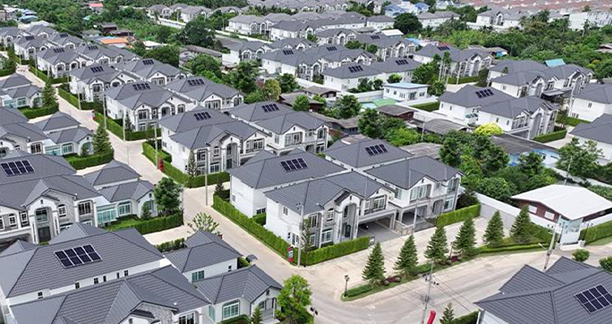
2%
of GHG Scope 1 and 2 were reduced, compared to baseline 2021.
31%
of GHG Scope 3 were reduced, compared to baseline 2021.
16%
of energy consumption intensity was reduced, compared to baseline 2021.
1,241.33
MWh
of renewable energy was consumed within organization in 2024.
Diversity, Equity and Inclusion
The Company recognizes that it must conduct its business activities with respect for human rights, as these rights are essential to all human beings and to sustainable development, including the Sustainable Development Goals (SDGs). Therefore, the Company is committed to respecting the human rights of all stakeholders, mitigating human rights risks, preventing human rights violations and providing remedies for those affected.
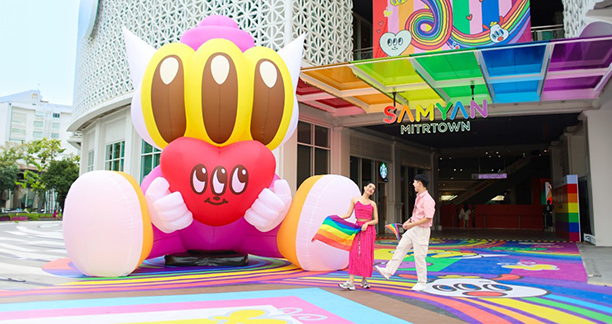
No
significant human rights complaint was raised in 2024.
No
fcomplaint related to discrimination was raised in 2024.
39%
was the percentage of female representations in top executives in 2024.
Responsible Investment
Incorporating environmental, social and governance criteria into our investment process
Waste
Reducing waste generation through prevention, reduction, recycling and reuse
Skills & Leadership
Developing programs that support productive activities, creativity and innovation to deliver high-value products and services
Responsible Investment
Given the risks and impacts that environmental and social issues impose on businesses, the surrounding environment, communities, and stakeholders, there is an imperative need for a new investment strategy to guide business operations and decision-making processes. The development of buildings with reduced environmental and social impacts could present an opportunity for new investors and tenants interested in green buildings, and those who wish to reduce their emissions through a more energy efficient office building. As a leading company in responsible business practices, the Company is committed to integrating responsible investments and sustainability factors into its decision-making strategies for developing high-quality, safe, environmentally friendly, and socially responsible properties that are resilient to climate change and responsive to customer demands.
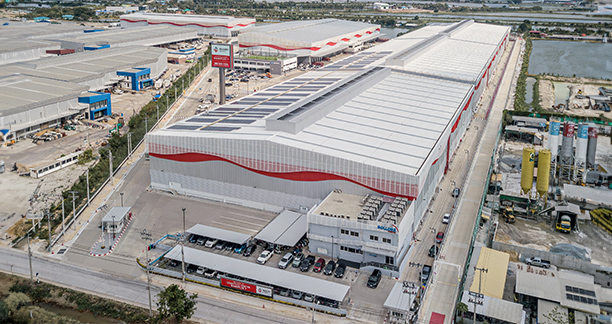
100%
of new buildings are certified by the green building standards.
67%
of assets under commercial property and industrial property business units were green building certified.
4
new projects were certified by green building standards in 2024.
Waste
The Company realizes that real estate companies, with activities ranging from construction to building and property management, are contributors to waste generation, which can cause pollution and negatively affect surrounding environments and communities. Due to this, the Company pays particular attention to waste management across its value chain and recognizes that resources used in its business activities contribute to waste generation.
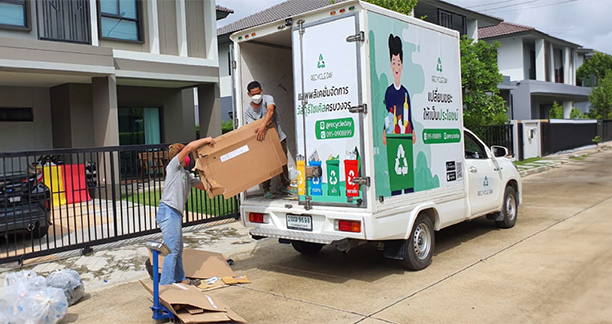
9.4%
was the recycle and reuse rate in commercial property business unit and head office in 2024.
64%
of waste generated intensity was reduced, compared to baseline 2021.
Skills and Leadership
The Company recognizes that failing to enhance capacity development programs may leave employees across its business activities unable to keep pace with market trends and evolving customer needs, potentially leading to discomfort and anxiety at work. By recognizing these, the Company places great emphasis on human resource management and compliance with regulatory requirements to mitigate potential risks related to employee development and legal violations.
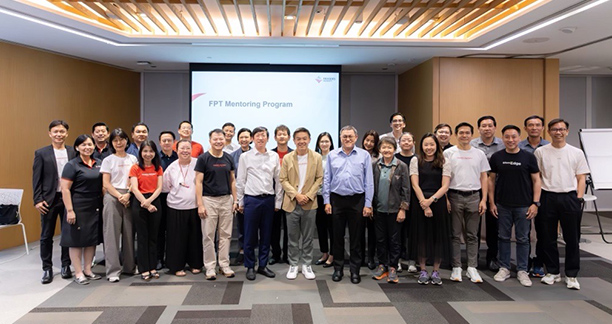
21.23
million THB
was invested in employee trainings.
79
hours/person/year
were the average employee learning hours in 2024.
26,220
hours
of ESG learnings were provided to employees in 2024.
Water
Increasing water efficiency and the recycling and safe reuse of water discharged
Water
The Company is well aware that water is a crucial resource and integral to the business operations of all sectors, including the real estate sector. However, their business activities across the value chain pose a risk of creating adverse impacts on water resources through excessive water consumption, which may result in public water scarcity or conflicts with surrounding communities. The Company is hence committed to water stewardship by prioritizing water conservation initiatives and improving the efficiency of water consumption across all business activities throughout the value chain. Also, the Company always emphasizes the efficient water usage across the value chain to generate long-term positive impacts for the environment and its stakeholders, especially the surrounding communities.
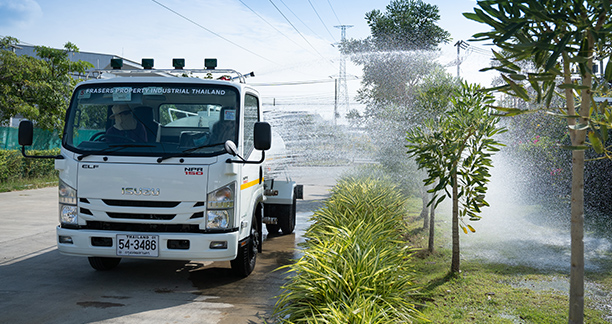
18%
of tap water consumption intensity was reduced in 2024, compared to baseline 2021.
388,145 m3
of water was recycled/reused in 2024*.
*Included both water recycled in projects and water recycled from sold units of residential property business unit.
Awards

Global Real Estate Sustainability Benchmark (GRESB) 2020-2024:
- A-Level Rating of Sustainability Disclosure
- 2 Stars Rating for Standing Investment

Stock Exchange of Thailand ESG Ratings 2024: AA level
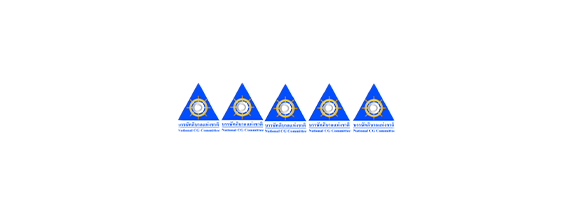
Corporate Governance Report of Thai Listed Companies 2020-2024: CGR 5 stars "Excellent"

TRIS Rating 2024: A

ESG activities
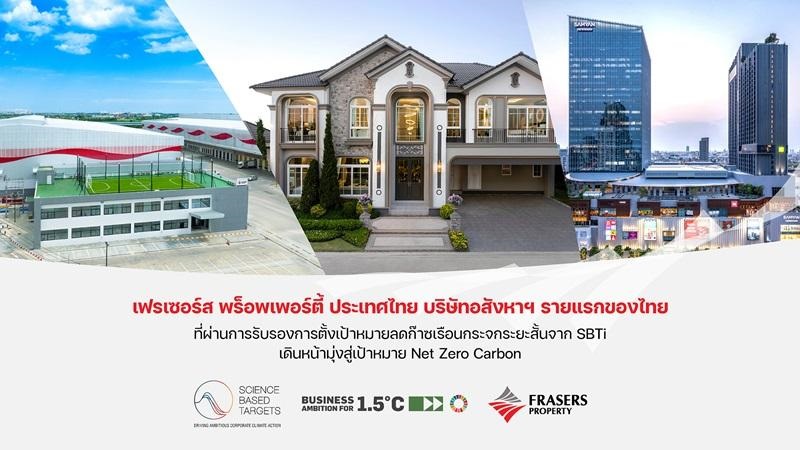
Frasers Property Thailand first property company in Thailand with SBTi-validated near-term greenhouse gas reduction targets
Read More
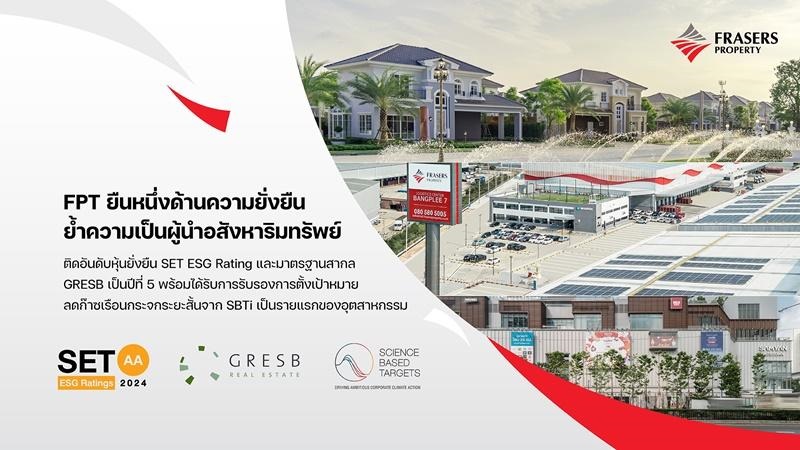
Frasers Property Thailand received an AA-level SET ESG Rating from the Stock Exchange of Thailand
Read More
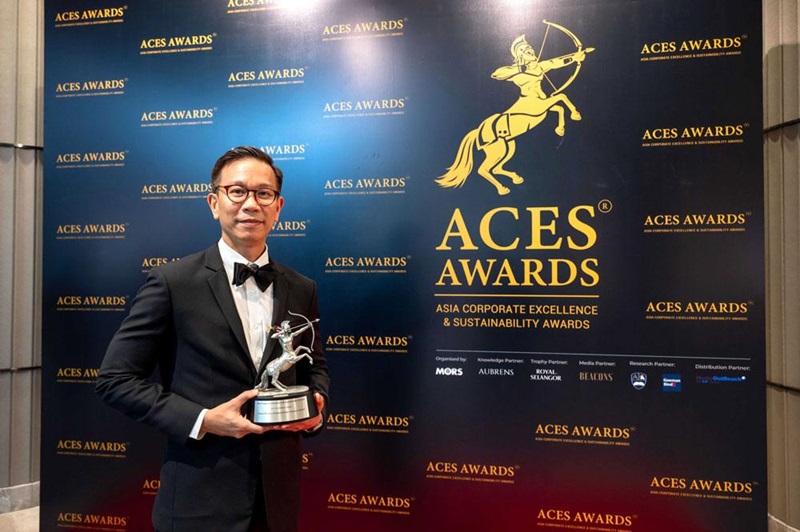
Frasers Property Thailand won Asia's Most Influential Companies Award at ACES Awards 2024
Read More
